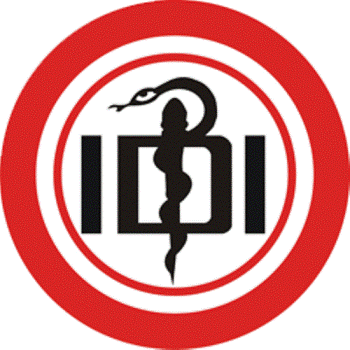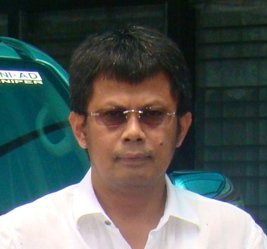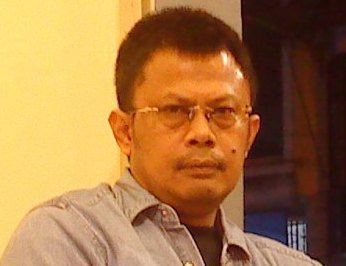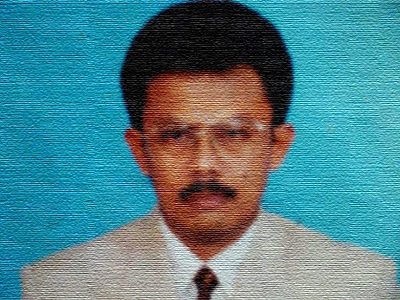Tuesday, 20th January 2009
Female Genital Mutilation
The World Health Assembly adopted a resolution on Female Genital Mutilation (“FGM”) during its May 2008 meeting in Geneva.
FIGO has itself adopted a strong stance on the elimination of FGM and the first FIGO resolution on the topic was adopted in 1994 in Montreal.
FIGO member societies where the practice is prevalent are encouraged to join hands with the present international momentum for elimination of FGM.
World Health Assembly Resolution
The Sixty-first World Health Assembly,
Having considered the report on female genital mutilation;
Recalling resolution WHA47.10 on Maternal and child health and family planning: traditional practices harmful to the health of women and children;
Recalling the Beijing Declaration and Platform for Action of the Fourth World Conference on Women (Beijing, 1995), the Programme of Action of the International Conference on Population and Development (Cairo, 1994) and their five- and ten-year reviews as well as the United Nations Millennium Declaration 2000 and the commitments relevant to the girl child made at the United Nations General Assembly special session on children (2002), and in United Nations General Assembly resolution 60/1 on the 2005 World Summit Outcome, and affirming that all these outcomes constitute an essential framework for advancing the rights of women and girls and eliminating female genital mutilation;
Affirming that the International Covenant on Civil and Political Rights (1976), the Convention on the Elimination of All Forms of Discrimination against Women (1979) and the Convention on the Rights of the Child (1989), constitute an important contribution to the legal framework for the protection and promotion of the human rights of girls and women, and recognizing the importance African States attach to the African Charter on the Rights and Welfare of the Child (1990) and the Solemn Declaration on Gender Equality in Africa (2004) in this regard;
Recognizing the entry into force of the Protocol to the African Charter on Human and Peoples’ Rights on the Rights of Women in Africa, adopted in Maputo on 11 July 2003, whose provisions on female genital mutilation mark a significant milestone towards the abandonment of this practice;
Recalling also the resolution of the United Nations Commission on the Status of Women1 on ending female genital mutilation (March 2008);
Recognizing that female genital mutilation violates the human rights of girls and women including their right to the enjoyment of the highest attainable standard of physical and mental health;
Noting that, whereas there is evidence of decline in the practice, it is still widespread in some parts of the world, with an estimated 100 million to 140 million girls and women having undergone the practice and at least another three million being at risk of undergoing the practice every year;
Deeply concerned about the serious health consequences of female genital mutilation; the risk of immediate complications, which include severe pain, shock, haemorrhage, tetanus, sepsis, urine retention, ulceration of the genital region and injury to adjacent genital tissue; the long-term consequences, which include increased risk of maternal morbidity, recurrent bladder and urinary tract infection, cysts, infertility and adverse psychological and sexual consequences; and increased risk of neonatal death for babies born to mothers having undergone female genital mutilation;
Also concerned about emerging evidence of an increase in carrying out female genital mutilation by medical personnel in all regions where it is practised;
Emphasizing that concerted action is needed in sectors such as education, finance, justice and women’s affairs as well as in the health sector, and that many different kinds of actor must be engaged, from governments and international agencies to nongovernmental organizations,
1. URGES all Member States:
(1) to accelerate actions towards the elimination of female genital mutilation, including
education and information necessary for full understanding of the gender, health and human rights dimensions of female genital mutilation;
(2) to enact and enforce legislation to protect girls and women from all forms of violence, particularly female genital mutilation, and ensure implementation of laws prohibiting female genital mutilation by any person, including medical professionals;
(3) to support and enhance community-based efforts to eliminate the practice of female genital mutilation, particularly ensuring men’s and local leaders’ participation in the process to eliminate the practice;
(4) to work with all sectors of government, international agencies and nongovernmental organizations in support of the abandonment of the practice as a major contribution to attainment of the Millennium Development Goals on promoting gender equality and empowerment of women, reducing child mortality, and improving maternal health;
(5) to formulate and promote guidelines for the care, particularly during childbirth, of girls and women who have undergone female genital mutilation;
(6) to develop or reinforce social and psychological support services and care and to take measures to improve health, including sexual and reproductive health, in order to assist women and girls who are subjected to this violence;
2. REQUESTS the Director-General:
(1) to increase support to Member States for implementing actions to advocate for the
elimination of female genital mutilation and other forms of violence against girls and women;
(2) to work with partners both within and outside the United Nations system to promote actions to protect the human rights of girls and women;
(3) to increase support for research on different aspects of female genital mutilation in order, inter alia, to achieve its elimination;
(4) to assist Member States with strengthening their health information systems for
monitoring progress made towards elimination of female genital mutilation;
(5) to report every three years, to the Health Assembly, through the Executive Board, on actions taken by the WHO Secretariat, Member States and other partners.
Accessibility | Contact us | Privacy policy | Sitemap | Terms & conditions
FIGO Secretariat, FIGO House, Suite 3 - Waterloo Court, 10 Theed Street, London, SE1 8ST, UK
BLOG DOKTER SPESIALIS KEBIDANAN DAN PENYAKIT KANDUNGAN ( Obstetric's & Gynecologist Blog ) Sumatera Barat.,Indonesia
SAVE YOUR BABY'S, SAVE NEXT GENERATION'S
SAVE YOUR BABY'S, SAVE NEXT GENERATION'S
Search This Blog
- Universitas Andalas Website
- TRIGEMINAL NEURALGIA LECTURES AND TREATMENT
- Maternal and Child :Research and Article
- dr Firman. Abdullah SpOG/ OBGYN .Personal Edition
- dr Firman Abdullah SpOG / ObGyn.com
- Dr Djohanas Djohan Abdullah Memorial Hospital.com
- Bukittinggi International Hospital.com
- Aliansi Rakyat Anti Korupsi Bukitinggi.com
Jam Gadang.Bukittinggi. Sumatera Barat .Indonesia
24.jpg)

Bung Hatta statue ,Bukittinggi
About me.....
IKATAN DOKTER INDONESIA (IDI).Sumatera Barat

INDONESIAN MEDICAL ASSOCIATION
ASSALAMUALAIKUM........
dr Firman Abdullah SpOG / OBGYN
Peer - Review..Cyberounds
Blog Archive
-
►
2008
(1)
- ► March 2008 (1)
-
▼
2009
(387)
- ► April 2009 (87)
-
▼
July 2009
(78)
- POST PARTUM DEPRESSION, MAYO CLINIC
- Aerobic exercise: Top 10 reasons to get physical
- Exercise and depression: A means of self-mangement...
- Prenatal education for congenital toxoplasmosis
- Treatments for toxoplasmosis in pregnancy
- Vaccines for women to prevent neonatal tetanus
- Routine prophylactic drugs in normal labour for re...
- Transient neurologic symptoms (TNS) following spin...
- To have or not to have: The critical importance of...
- Genital herpes in pregnancy: information for you
- Maternal positions and mobility during first stage...
- OVARIUM CYST
- BARTHOLINI CYST
- LEARN ABOUT CYTOMEGALOVIRUS
- Primary versus Nonprimary Cytomegalovirus Infectio...
- Detection of Parvovirus B19, Cytomegalovirus, and ...
- Common virus could cause high blood pressure
- Definition of Follicular cyst of the ovary
- The management of infants and children treated wit...
- Congenital cytomegalovirus infection in pregnancy:...
- FIGO Position Statement on Professional Standards
- FIGO Reaffirms Stance on Eliminating Female Genita...
- WHA for FGM resolution
- Countdown to 2015
- FIGO Awards In Recognition of Women Obstetricians/...
- FIGO launches project to improve maternal and newb...
- Breast screening 'the best discovery tool
- Ultrasound 'outperforms symptom analysis' on ovari...
- Invest in women, invest in society, UN official cl...
- Medical care needed' for miscarriage sufferers
- Caesarean 'should not be automatic choice for bree...
- Inadequate health care 'still costing lives'
- Natural birth techniques 'can be very efficient'
- Maternal mortality rates 'have not improved since ...
- Pregnant women and newborns 'most at risk from flu'
- Many induced labours 'should be avoided'
- Work demands 'can impact on pregnancy'
- Stillbirth conference aims to raise awarness
- Mothers 'should be aware of birth options'
- Pelvic exercises 'can help with childbirth and rec...
- Mother's diet 'can lead to medical complications'
- Cytomegalovirus infection and haemophagocytosis in...
- Severe cytomegalovirus (CMV) community-acquired pn...
- The management of infants and children treated wit...
- Congenital rubella infection after previous immuni...
- Antiviral therapy for herpesvirus central nervous ...
- RCOG statement on ‘It’s good for women to suffer t...
- Royal College of Obstetricians and Gynaecologists
- The Challenge of MDGs 4 and 5, South Africa
- RCOG/RCM statement – Advice on swine flu and pregn...
- Pregnancy, Breastfeeding and Swine Flu A/H1N1
- Postnatal quality of life in women after normal va...
- Systematic review of effect of community-level int...
- Peripartum cardiomyopathy
- Pulmonary embolism and pregnancy
- Amniotic fluid embolism
- Airway problems in pregnancy
- Acute asthma in pregnancy
- Circumcision helps protect men, not women from AIDS
- Health Tip: Help Prevent Birth Defects Steps you ...
- Health Tip: Does Your Child Have Symptoms of ADHD?
- Alzheimer's Disease
- The Problem with Adhesions
- The impact of adhesions on endometriosis
- Pain and Endometriosis
- Endometriosis and bowel symptoms
- Mesoprogestins (Asoprisnil) in the treatment of en...
- Diagnosis and long-term management of endometriosis
- Endometriosis Image Library
- Progesterone resistence in endometriosis
- BJOG release: Vaginal delivery vs elective caesare...
- Childbirth aged 35 and over - query bank
- Secondary cytomegalovirus infection can cause seve...
- Epilepsy research
- H1N1 flu (swine flu)
- Four things you can do to prevent infections
- Infections in newborn babies
- Fetal hydrocephalus
- ► August 2009 (54)
- ► September 2009 (21)
- ► November 2009 (4)
- ► December 2009 (11)
-
►
2010
(45)
- ► January 2010 (6)
- ► February 2010 (11)
- ► March 2010 (1)
- ► April 2010 (7)
- ► November 2010 (2)
-
►
2011
(4)
- ► February 2011 (2)
- ► March 2011 (2)
FEEDJIT Live Traffic Feed
Discussion Board
FEEDJIT Live Traffic Map
FEEDJIT Recommended Reading
FEEDJIT Live Page Popularity
dr Firman Abdullah SpOG / OBGYN

Subscribe to:
Post Comments (Atom)
BMI CALCULATOR
ACHMAD MOCHTAR GENERAL HOSPITAL BUKITTINGGI

RUMAH SAKIT ACHMAD MOCHTAR BUKITTINGGI
Firman Abdullah Bung
drFirman Abdullah SpOG / ObGyn

KELUARGA BESAR TNI-AD
Dr Firman Abdullah SpOG/ OBGYN, Bukittinggi, Sumatera Barat ,Indonesia
Bukittinggi , Sumatera Barat , Indonesia

Balaikota Bukittinggi
dr Firman Abdullah SpOG / OBGYN

Ngarai Sianok ,Bukittinggi, Sumatera Barat.Indonesia

Brevet in Specialist Obstetric's & Gynecologist 1998

dr Firman Abdullah SpOG/ObGyn


Dokter Spesialis Kebidanan dan Penyakit Kandungan . ( Obstetric's and Gynaecologist ) . Jl.Bahder Johan no.227,Depan pasar pagi ,Tembok .Bukittinggi 26124 ,HP:0812 660 1614. West Sumatra,Indonesia
Sikuai Beach ,West Sumatra ,Indonesia


Fort de Kock, Bukittinggi






No comments:
Post a Comment